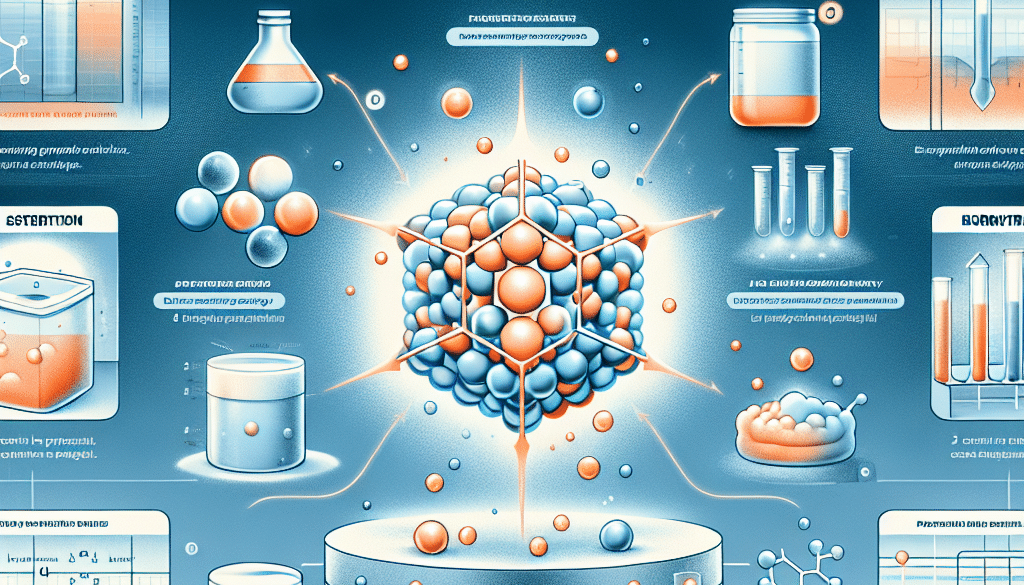Preservative Strategies for Protein Stability: Long-Lasting Freshness
-
Table of Contents
- Protein Stability Preservation: Ensuring Long-Lasting Freshness
- Understanding Protein Instability
- Strategies for Enhancing Protein Stability
- Physical Stabilization Techniques
- Chemical Stabilization Methods
- Formulation Adjustments
- Case Studies and Examples
- Current Trends and Innovations
- Statistical Insights
- Conclusion: Key Takeaways for Long-Lasting Protein Freshness
- Discover ETprotein’s High-Quality Protein Products
Protein Stability Preservation: Ensuring Long-Lasting Freshness

Proteins are fundamental to the structure and function of all living cells. They are crucial in food products, pharmaceuticals, and various industrial applications. However, proteins are inherently unstable and can lose their functional properties over time. This instability poses significant challenges in maintaining the freshness and efficacy of protein-containing products. To address these challenges, various preservative strategies have been developed to enhance protein stability and ensure long-lasting freshness.
Understanding Protein Instability
Proteins can undergo various forms of degradation, such as denaturation, aggregation, and chemical modification. These changes can be triggered by factors like temperature, pH, light exposure, and the presence of enzymes. The instability of proteins can lead to reduced nutritional value, loss of functionality, and decreased shelf life of products.
Strategies for Enhancing Protein Stability
To combat protein instability, several strategies have been employed. These strategies aim to protect proteins from degradative conditions and extend the shelf life of products.
Physical Stabilization Techniques
- Lyophilization (Freeze-Drying): This process involves freezing the protein and then reducing the surrounding pressure to allow the frozen water to sublimate directly from the solid phase to the gas phase. Lyophilization helps in preserving the protein’s structure and activity.
- Encapsulation: Encapsulating proteins in biocompatible materials can protect them from environmental factors and controlled release.
- Refrigeration and Freezing: Low temperatures slow down the rate of protein degradation and enzymatic activity, thus preserving protein integrity.
Chemical Stabilization Methods
- Buffer Systems: Maintaining an optimal pH range can prevent protein denaturation and maintain stability.
- Antioxidants: These compounds can protect proteins from oxidative damage, which is a common pathway for protein degradation.
- Chelating Agents: These agents bind to metal ions that can catalyze oxidative reactions, thereby protecting proteins.
Formulation Adjustments
- Protein Engineering: Modifying the amino acid sequence of proteins can enhance their stability and resistance to harsh conditions.
- Addition of Stabilizers: Substances like sugars, polyols, and amino acids can stabilize proteins by various mechanisms, including preferential hydration and vitrification.
Case Studies and Examples
Several case studies highlight the effectiveness of these preservative strategies. For instance, the pharmaceutical industry has successfully used lyophilization to preserve the stability of therapeutic proteins in vaccines and biologic drugs. In the food industry, encapsulation techniques have been employed to protect sensitive proteins in functional foods and nutraceuticals.
Current Trends and Innovations
The field of protein stability is continuously evolving, with new technologies and materials being developed. Innovations such as the use of nanotechnology for protein encapsulation and the exploration of natural preservatives are at the forefront of current research.
Statistical Insights
Statistics show that the global market for protein stabilization and preservation is growing, driven by the increasing demand for protein-rich products and the need for longer shelf life. The market is expected to continue expanding as new preservation technologies are developed and adopted.
Conclusion: Key Takeaways for Long-Lasting Protein Freshness
In conclusion, preserving protein stability is crucial for maintaining the freshness, functionality, and shelf life of protein-containing products. Physical stabilization techniques, chemical methods, and formulation adjustments are all effective strategies for achieving this goal. Ongoing research and innovation will continue to enhance our ability to preserve proteins in various applications.
Discover ETprotein’s High-Quality Protein Products
If you’re looking for premium protein products that benefit from advanced preservation techniques, ETprotein offers a range of options. Their organic bulk vegan protein and plant proteins are designed with stability in mind, ensuring that you receive products of the highest quality and freshness.
About ETprotein:
ETprotein, a reputable protein Chinese factory manufacturer and supplier, is renowned for producing, stocking, exporting, and delivering the highest quality organic bulk vegan protein and plant proteins. They include Organic rice protein, clear rice protein, pea protein, clear pea protein, pumpkin seed protein, sunflower seed protein, mung bean protein, peanut protein etc. Their offerings, characterized by a neutral taste, non-GMO, allergen-free attributes, cater to a diverse range of industries. They serve nutraceutical, pharmaceutical, cosmeceutical, veterinary, as well as food and beverage finished product distributors, traders, and manufacturers across Europe, USA, Canada, Australia, Thailand, Japan, Korea, Brazil, and Chile, among others.
ETprotein specialization includes exporting and delivering tailor-made protein powder and finished nutritional supplements. Their extensive product range covers sectors like Food and Beverage, Sports Nutrition, Weight Management, Dietary Supplements, Health and Wellness Products, and Infant Formula, ensuring comprehensive solutions to meet all your protein needs.
As a trusted company by leading global food and beverage brands and Fortune 500 companies, ETprotein reinforces China’s reputation in the global arena. For more information or to sample their products, please contact them and email sales(at)ETprotein.com today.














